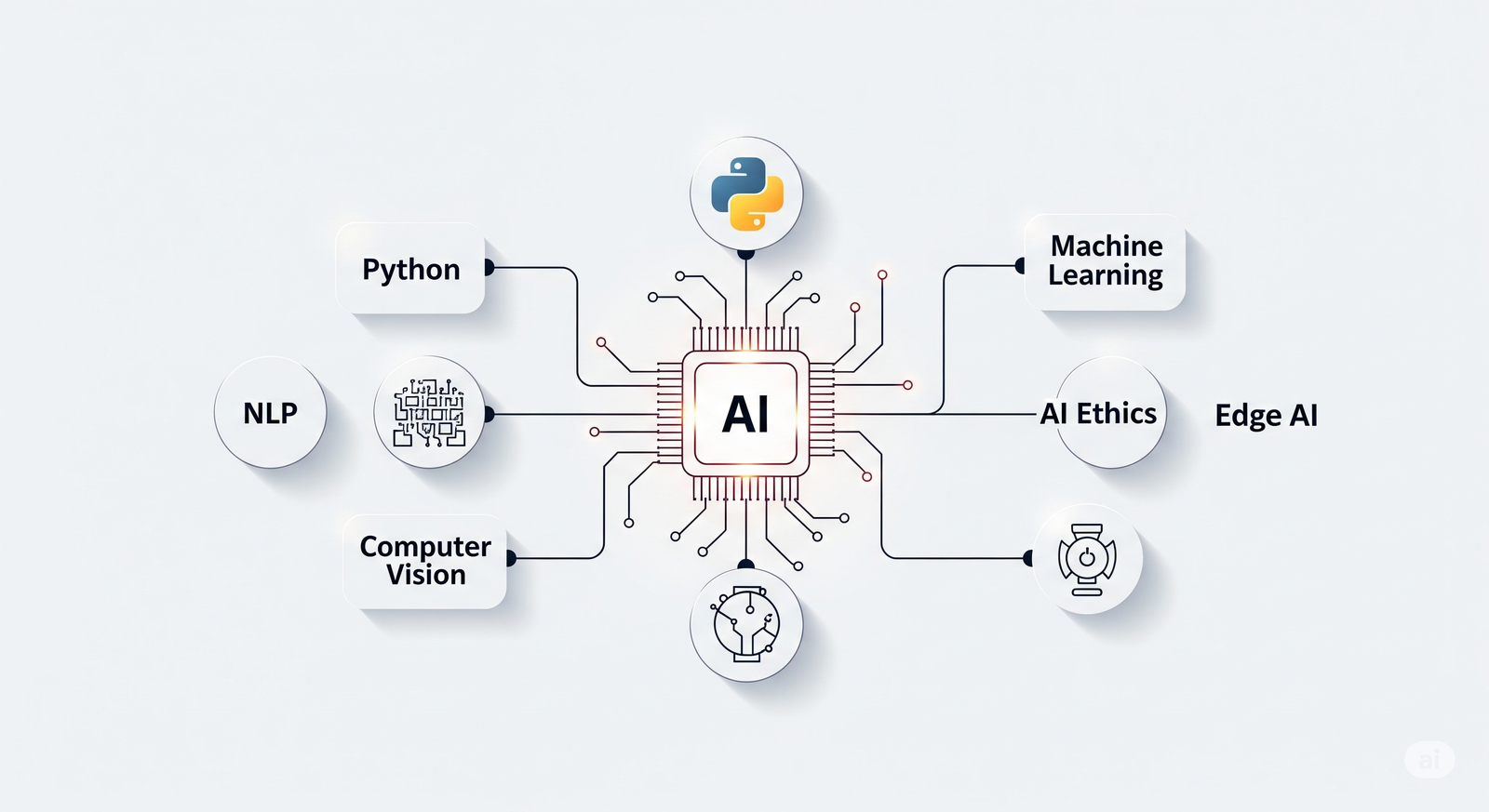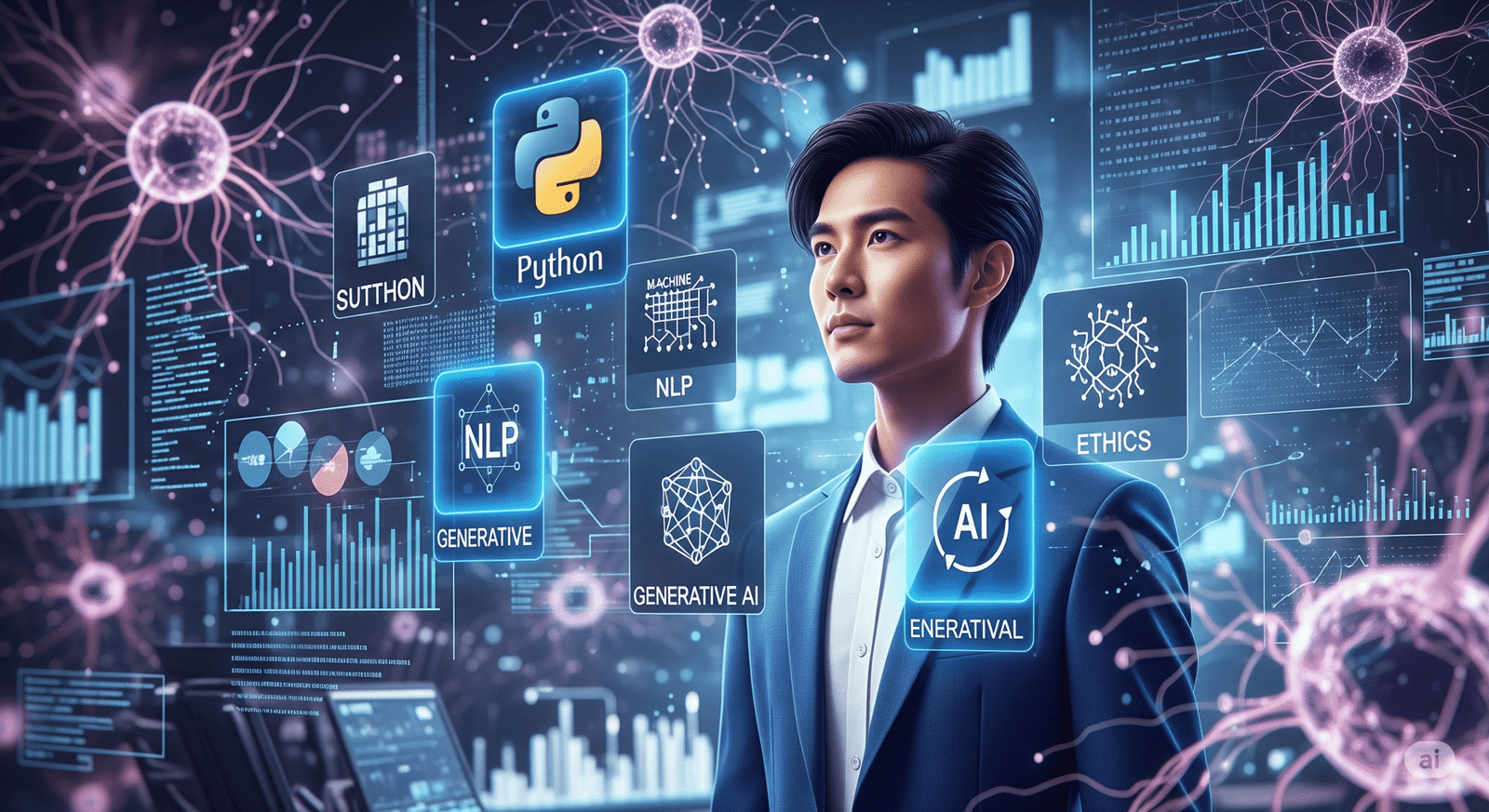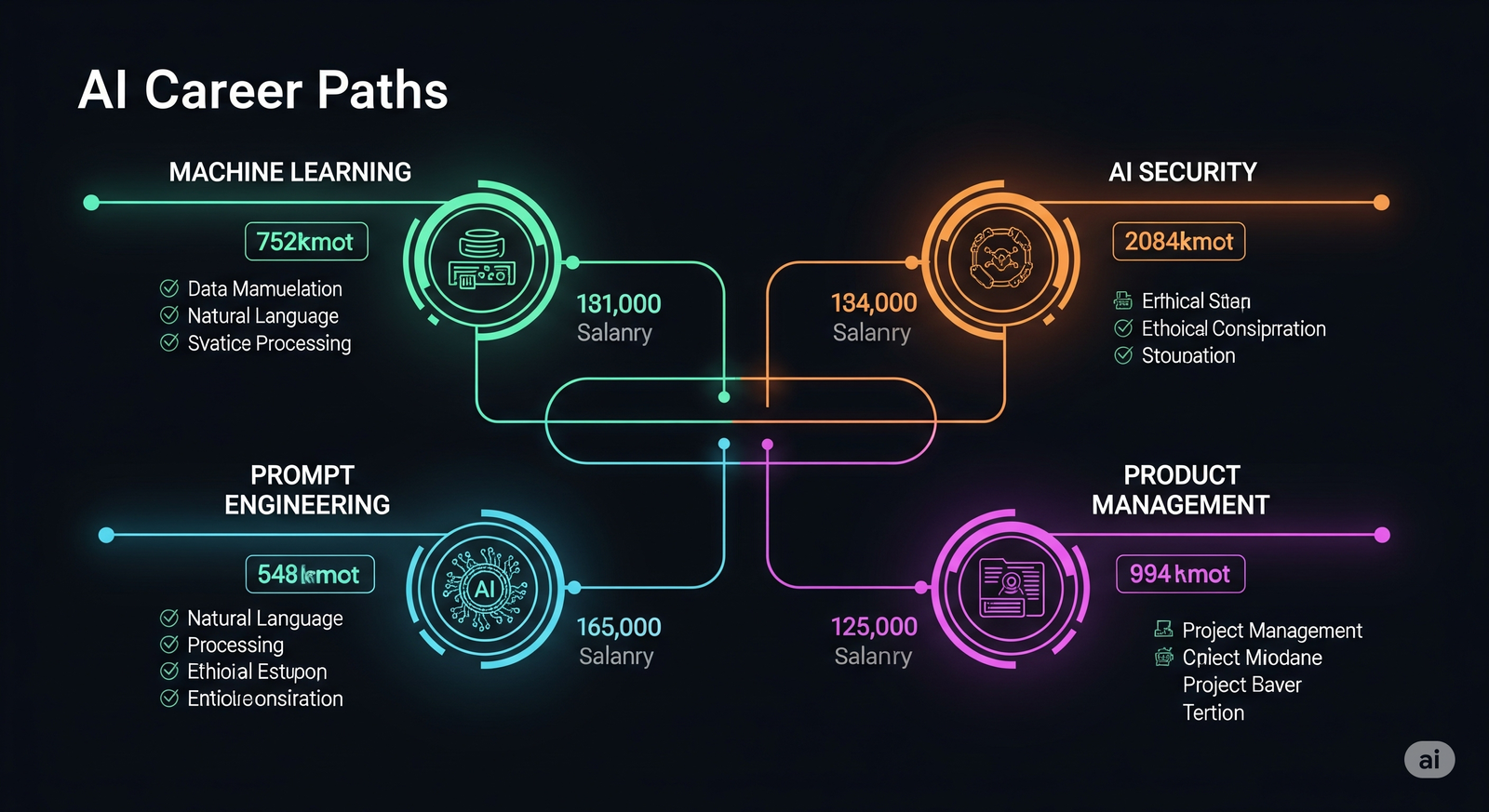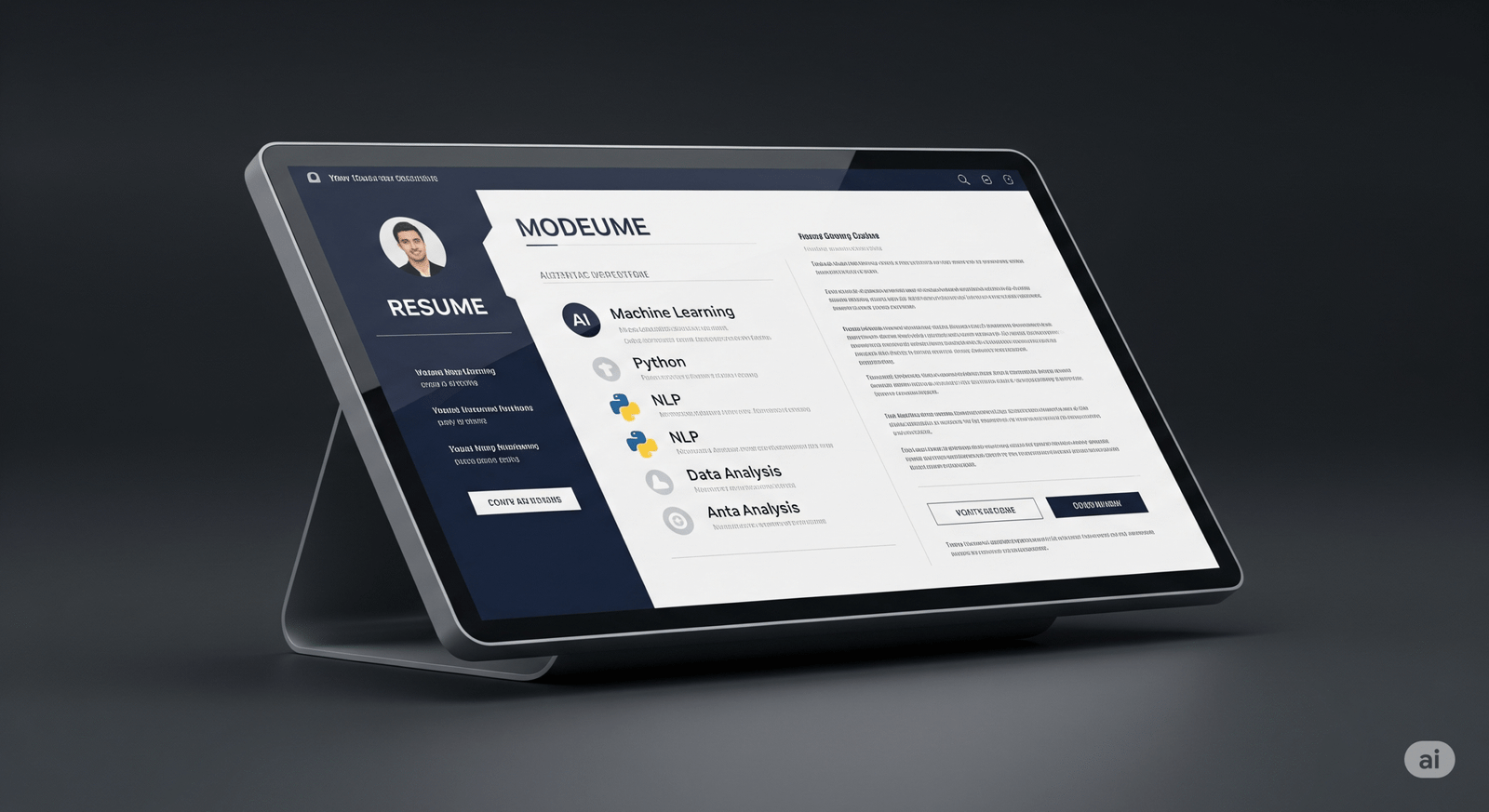
Artificial Intelligence is no longer a futuristic concept—it’s the engine powering today’s innovations, from healthcare and finance to creative industries and education. As companies race to integrate AI, demand skyrockets for individuals skilled in key AI domains. Whether you’re just starting or aiming to elevate your expertise, mastering these top AI skills in 2025 will help you make a tangible impact—and stand out in a competitive job mark
1. Python Programming & Data Handling
- Why it’s essential:
Python is the #1 programming language in AI thanks to its simplicity and extensive libraries (NumPy, Pandas, Scikit-learn). - Beginner to intermediate goals:
Learn Python basics (loops, functions, data types), manipulate data frames, perform analyses, and create simple visualizations (Matplotlib, Seaborn). - Next steps:
Hands-on: load datasets like Iris or Titanic, clean data, compute statistics, and plot insights. Showcase on GitHub to demonstrate skills in data preprocessing and EDA.
2. Machine Learning & Deep Learning Foundations
- Why it matters:
Whether predicting stock prices or detecting diseases, machine learning models power AI-driven decisions. - Skills to master:
Supervised vs. unsupervised learning, model training, evaluation metrics (accuracy, precision, recall), and algorithms like linear regression, decision trees, and basic neural networks. - Tips for practice:
Use Scikit-learn to train classifiers; step into deep learning with TensorFlow or PyTorch—start small (digit-recognizer) and gradually increase complexity.
3. Natural Language Processing (NLP) & LLM Prompting
- Why it’s relevant:
With large language models dominating text-based AI, understanding NLP unlocks advanced content creation and language-based automation. - Key skills:
Fundamentals: tokenization, part-of-speech tagging, named entity recognition. Learn prompt engineering, context management, and API integration with GPT-style models. - Practice ideas:
Build a sentiment analyzer using NLTK or spaCy. Write ChatGPT prompts for summarizing, translating, or generating content. Fine-tune public LLMs for specialized tasks.

4. Generative AI & Image/Video Tools
- Why this skill matters:
Generative AI tools (like DALL·E or Midjourney) are revolutionizing creatives, marketing, and e-commerce with fast, adaptive content generation. - What to learn:
Style transfer, image generation, prompt engineering. Explore computer vision basics: image classification, object detection with OpenCV or PyTorch. - Project examples:
Generate custom images with DALL·E prompts for blog posts. Train a classifier to detect objects in real-world photos.
5. Reinforcement Learning (RL)
- Why it’s impactful:
RL underlies advanced decision-making systems—autonomous vehicles, game bots, robotics, and optimization tasks. - Foundational knowledge:
Understand MDPs, explore-exploit trade-offs, Q-learning, policy gradients. - How to practice:
Use OpenAI Gym to train a virtual agent (e.g., CartPole balancing). Experiment with hyperparameters and publish findings.
6. Edge AI & On-Device Deployment
- Why it’s sought after:
Edge AI transforms everyday devices—smartphones, wearables, IoT—with faster, secure, real-time intelligence. - Skills to gain:
Learn model optimization (quantization, pruning). Deploy lightweight models using TensorFlow Lite, PyTorch Mobile, or NVIDIA Jetson. - Starter project:
Convert your image classifier to TFLite and run it on a smartphone demo; capture live data via a camera feed.
7. AI Ethics, Fairness & Governance
- Why it matters:
With AI making impactful decisions, it must align with ethical principles—transparency, privacy, fairness, and accountability. - Key areas to explore:
Bias detection, data privacy regulations, and ethical frameworks like the “5 pillars” from IBM and OECD. - How to engage:
Audit a model for bias (e.g., gender or race disparity). Write a blog post about its implications. Present corrections or fairness estimates in model outputs.
8. Soft Skills: Critical Thinking & Communication
- Why these matter:
Today’s AI roles demand more than coding—teams seek innovators, communicators, and ethical collaborators. - What to focus on:
Hard thinking skills: problem decomposition, evaluating model trade-offs, data-driven decision-making.
Soft skills: explaining complex results clearly, ethical reasoning during development, collaboration in agile teams. - Get better:
Create a project presentation. Join AI hackathons or meetups. Gather feedback from technical and non-technical peers.
90-Day Learning Plan for Beginners
| Weeks | Focus Area | Goal |
|---|---|---|
| 1–2 | Python & Data Preprocessing | Build data cleaning and plotting scripts |
| 3–5 | Machine Learning Projects | Train and evaluate ML models; share results |
| 6–7 | NLP & Prompt Engineering | Build simple chatbot/API integration project |
| 8–9 | Generative AI & Vision | Create images via prompts; build vision demo |
| 10–11 | Reinforcement Learning Experiment | Train RL agent; document lessons |
| 12 | Model Deployment & Ethics Audit | Deploy on device; evaluate model fairness |
By the end of 3 months, you’ll have a diverse portfolio showcasing foundational AI work, ethical awareness, and real-world deployment skills.
Beginner FAQ
Q: No coding background—can I start?
Yes! Begin with basic Python tutorials and visual, no-code platforms. Many beginner-friendly AI tools exist.
Q: Is formal education necessary?
Not really. Skill-based hiring is growing fast—employers often prefer portfolios and practical AI experience.
Q: What makes someone stand out?
Real projects on GitHub, public blogs explaining your AI journey, active participation in AI communities, and demonstration of ethical awareness.
Call to Action
Ready to accelerate your AI journey?
- Choose one skill today.
Start with Python or prompt engineering—commit to 30 minutes daily. - Take a free beginner course.
Try Coursera’s “AI For Everyone” or edX’s “Python for Data Science.” - Build a small project.
A chatbot, image classifier, or RL agent—whatever excites you. - Showcase your work.
Publish on GitHub and LinkedIn, ask for feedback, and iterate. - Join an AI community.
Reddit forums, Kaggle competitions, local meetups—get inspired, collaborate, and learn from peers.




